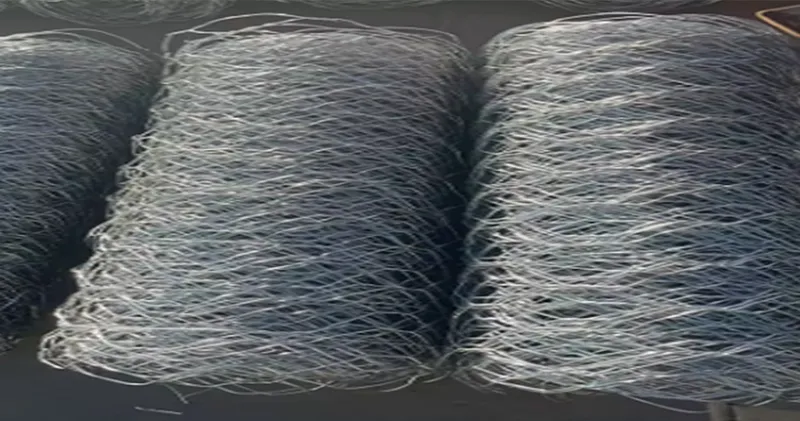-
 Phone:
Phone: -
 Email:
Email:

chain fence supplies
Understanding Chain Fence Supplies A Comprehensive Guide
When it comes to securing properties, both residential and commercial, chain link fencing stands out as one of the most versatile and cost-effective options available. Its durability, low maintenance, and ability to provide visibility without compromising security make it a popular choice. However, to maximize the effectiveness and longevity of chain link fences, understanding the essential supplies and components involved is crucial. This article aims to provide a comprehensive guide to chain fence supplies, helping you make informed decisions whether for DIY projects or when collaborating with professionals.
Key Components of Chain Link Fences
At the heart of any chain link fence are its fundamental components. Here’s a breakdown of the essential supplies you will need for installation
1. Chain Link Fabric This is the actual fencing material, typically made of high-quality galvanized steel or vinyl-coated wire. Chain link fabric comes in various heights and gauges, with the gauge referring to the thickness of the wire. The lower the gauge number, the thicker the wire, which translates to increased durability.
2. Posts Chain link fences require sturdy posts to support the fabric. Generally, a fence will have terminal posts (at the corners and ends) and line posts (spaced evenly along the line of the fence). Posts are usually made from galvanized steel or aluminum and should be adequately anchored to withstand environmental forces.
3. Fittings These are the connectors that hold the fence fabric to the posts. Common fittings include tension bands, gate hinges, and corner braces. The right fittings are crucial for ensuring the stability and longevity of the fence.
4. Gates A fence is only as functional as its means of access. Chain link gates can be made to match the design of the fence and come in various sizes and styles, including single and double gates. Remember to consider the space required for the swing of the gate when planning your fence layout.
5. Tension Wire This component helps to provide additional stability to the fence, particularly at the bottom. It can be added to enhance security and reduce the chances of the fabric sagging over time.
6. Concrete For setting the posts, concrete is a common choice. It ensures that the posts remain stable and upright, especially in areas with loose soil or heavy winds.
Preparing for Installation
chain fence supplies

Before diving into the installation process, adequate planning is essential. Consider the following points
- Local Regulations Check local zoning laws and ordinances regarding fencing. Some areas may have specific requirements concerning height, material, and placement. - Materials Purchase Measure your property to determine how much fabric, posts, and accessories are needed. Numerous suppliers offer chain link fence kits that include all necessary components, which can simplify the purchasing process.
- Tools Required Gather the right tools beforehand. Along with the fencing supplies, you’ll need tools like a post hole digger, level, and gate latch.
Maintenance Tips
Once installed, maintaining your chain link fence is key to ensuring its longevity
- Regular Inspections Conduct periodic inspections for signs of rust or damage. Addressing small issues promptly can prevent more significant repairs down the line.
- Cleaning Remove debris and dirt accumulation regularly. For galvanized fences, a simple wash with mild soapy water will help maintain its appearance and prevent corrosion.
- Painting and Coating If your fence is vinyl-coated, check for scratches or areas where the coating may have worn off. Touching up these spots can extend the life of the fence.
Conclusion
In conclusion, understanding the various chain link fence supplies and their proper application can make all the difference in your fencing project. Whether you’re securing a backyard, a commercial property, or an industrial site, investing time in choosing the right materials and following proper installation techniques will result in a sturdy, reliable fence that stands the test of time. As always, when in doubt, consulting with a fencing professional can help ensure that your investment is well-placed and suited to your specific needs.
-
Wire Mesh for Every Need: A Practical SolutionNewsJul.25,2025
-
Steel Fences: Durable, Secure, and Stylish OptionsNewsJul.25,2025
-
Roll Top Fencing: A Smart Solution for Safety and SecurityNewsJul.25,2025
-
Cattle Farm Fencing Solutions for Maximum SecurityNewsJul.25,2025
-
Affordable Iron Binding Wire SolutionsNewsJul.25,2025
-
Affordable Galvanized Wire SolutionsNewsJul.25,2025
-
Wire Hanger Recycling IdeasNewsJul.25,2025








